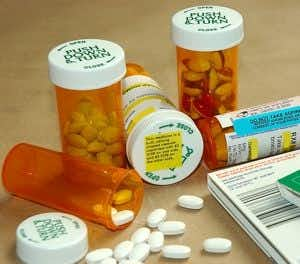
Hundreds of years ago, people with mental illness might be burned at the stake or locked away in a dungeon. In the early 20th century, some patients with schizophrenia were lobotomized with an ice pick to blunt emotions and reduce agitation.
Other treatments included padded cells, straitjackets, cold wet sheets and electroshock therapy. Mental institutions in the first part of the 20th century were sometimes referred to as “snake pits.”
It was in this barbaric context that the first antipsychotic drugs were developed. In 1952, when Thorazine (chlorpromazine) was first introduced, it was hailed as a breakthrough.
Other drugs such as Stelazine (trifluoperazine), Mellaril (thioridazine) and Haldol (haloperidol) followed. Although these antipsychotic medications were popular with psychiatrists, patients often thought of them as chemical straitjackets.
Such drugs helped reduce hallucinations and agitation. But there was a high price to pay for the apparent benefits. The drugs made people feel sedated and slowed them down, resulting in a zombie-like shuffle.
Other side effects included dizziness, slurred speech, seizures, and a variety of movement disorders such as severe neck muscle spasms causing head twitches or uncontrollable rhythmic movements such as sticking out the tongue. Urinary retention, constipation and sexual difficulties also contributed to the drugs’ unpopularity with patients, who often discontinued their medicines as soon as they were discharged.
A newer generation of schizophrenia drugs was introduced in the early 1990s with great fanfare. Drugs like Clozaril (clozapine), Risperdal (risperidone), Zyprexa (olanzapine), Seroquel (quetiapine), Geodon (ziprasidone) and Abilify (aripiprazole) are known as atypical antipsychotics.
Psychiatrists hoped that these medications would be better tolerated and much more effective than older antipsychotics. Some even believed the new drugs would help schizophrenic patients return to normal.
Over $13 billion is spent on antipsychotic medications each year. They are prescribed for a range of conditions beyond schizophrenia, including Alzheimer’s and dementia, bipolar disorder, insomnia, autism, obsessive-compulsive disorder, ADHD and major depression.
Despite the initial enthusiasm, there is growing consternation about the safety and effectiveness of these powerful mind medicines. A few years ago a study found that the newer and far pricier drugs were no more effective or less likely to cause troublesome side effects than an older antipsychotic (New England Journal of Medicine, Sept. 22, 2005). A new study in the same journal (Jan. 15, 2009) reported an alarming rate of sudden cardiac death linked to the newer drugs.
It’s no wonder that patients and families are nervous about these medicines, especially when you consider that they can cause other complications such as dramatic weight gain, diabetes, strokes and irregular heart rhythms. Children and older people may be particularly vulnerable.
People with mental illness deserve much better treatment than they have received to date. Although lobotomies and straitjackets are no longer used, modern medications leave a lot to be desired.

